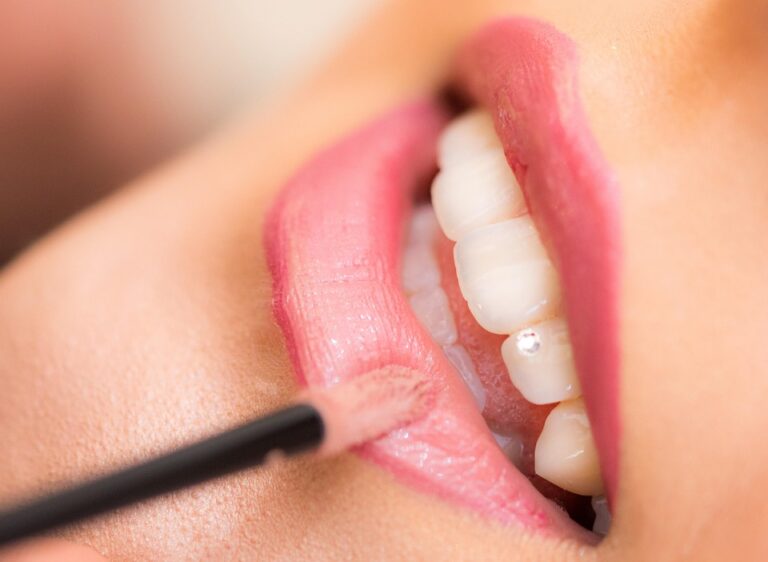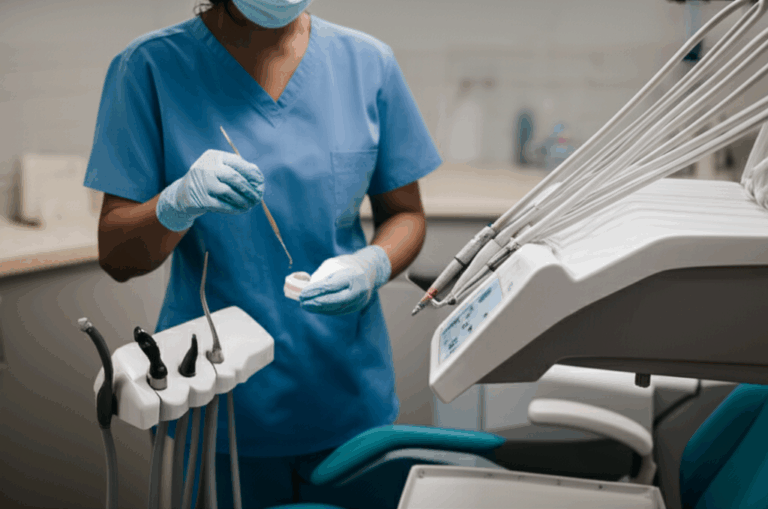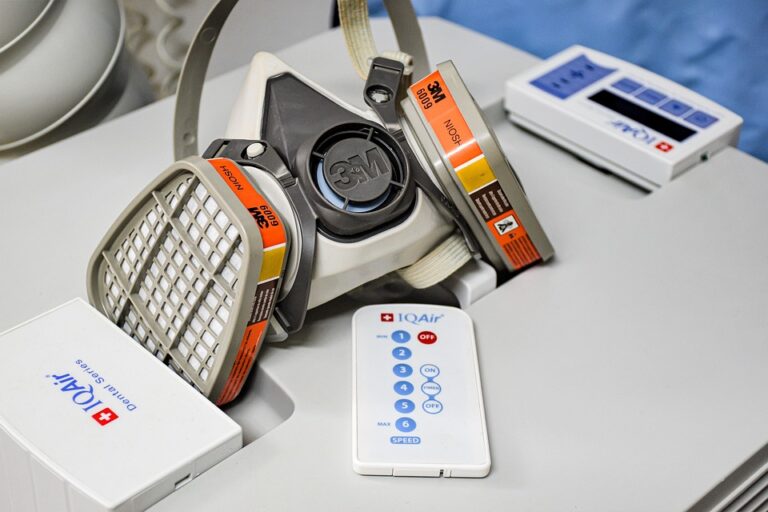
How Much Are Private Dentists? Your Guide to Costs, Value & Affordability
That uneasy feeling when you see “private dentist prices” online? You’re not alone. Maybe you’ve just been quoted for a crown or filling and you’re wondering, “Am I paying too much?” Or perhaps you’re weighing up private dental care versus NHS options and just want to know, in clear terms, what you’re getting for your money. In a world full of difficult price lists, hidden details, and dental words you don’t know, understanding the real cost of private dentistry can feel as tough as pulling your own wisdom tooth.
Here’s the good news: you’re in the right place. Whether you’ve got a quick question—like “How much is a filling?”—or you want to really get what makes up private dental treatment costs, this friendly guide will walk you through it, step by step. Let’s clear up the confusion, give you the facts (in simple English), and help you make choices that are good for both your teeth and your wallet.
In This Article
- Understanding Private Dentist Costs (and Why They Matter)
- Average Prices for Common Private Dental Procedures
- What Drives the Cost? The Real Reasons for Price Differences
- Private vs. NHS Dentistry: Breaking Down Costs and Value
- Making Private Dental Care Affordable: Your Options
- Is Private Dentistry Worth the Price? Who It Helps Most
- Key Takeaways: Your Roadmap to Smarter Oral Health Spending
Understanding Private Dentist Costs (and Why They Matter)
Let’s be honest, price matters—especially when you are making choices about your health. You deserve to know what you’re really paying for. When talking about private dental care in the UK, people often run into a mess of unclear price lists, codes, and strange fees. No surprise that lots of people search for “average private dentist cost” or “private dental fees UK.”
Why is it so confusing?
- Unlike NHS prices, there’s no official rule for what private dentists charge. Prices can change a lot not just from place to place, but even between clinics down the street from each other!
- “Private” can mean anything from a simple check-up to complicated treatments like dental implants and full smile changes, so the price gap is huge.
- You want things clearly explained—no extra charges or hard-to-understand words. You want to know what you get, what costs extra, and how to keep dentist bills low.
Bottom line: Knowing these prices puts the control back in your hands. It lets you budget better, compare options, and decide if private dental care is right for you.
Average Prices for Common Private Dental Procedures
Let’s get right to it—you want numbers, not sales talk. Here is a simple breakdown of what you might pay for normal private dental treatments in the UK. These are average ranges (as of 2023–2024), but remember, costs can be higher or lower depending on where you live, which dentist you see, and how tricky your teeth are.
> Tip: Always ask your dentist for a full price list that shows everything—check-ups, X-rays, materials, and aftercare. If you don’t get it, just ask!
Preventive & Diagnostic Care
- New Patient Consultation / Check-up: £50 – £150
(A full exam, often has a basic X-ray)
- Dental Hygiene Appointment (Scale & Polish): £60 – £120
(A professional clean to fight gum problems)
- Routine Dental X-rays (per film): £15 – £50
(Usually included in big check-ups; full mouth scans cost more)
Repair Treatments
- White (Composite) Filling: £80 – £250
(Cost depends on the size and which tooth: front teeth usually cheaper, back teeth cost more)
- Silver (Amalgam) Filling: £60 – £150
(Less common in private care, but possible)
- Tooth Removal (Simple): £100 – £250
(A regular tooth pulled out)
- Tooth Removal (Hard/Complex, like Wisdom Tooth): £250 – £450+
(Takes more time, skill, or a specialist)
- Root Canal Treatment: £300 (front tooth) – £1,000+ (back tooth)
(Back teeth have more roots, need more work, and cost more)
More Advanced & Looks-focused Procedures
- Dental Crown (Porcelain/Zirconia): £400 – £1,500+
(Material, lab work, and how tough it is sets the price. Fancy materials push the price up.)
- Dental Bridge (for each tooth/unit): £400 – £1,000+
(A “unit” is every tooth included in the bridge)
- Single Dental Implant (with crown and part included): £1,800 – £3,500+
(Extra work before implants like bone work adds £500–2,000 per area)
- Porcelain Veneers: £500 – £1,200+ (for each tooth)
(A high-end, good-looking fix; price depends on skill and material)
- Pro Teeth Whitening: £250 – £600 (in dentist chair), £150 – £350 (at-home kit)
(In-clinic is quicker and stronger; home kits are slower and cheaper)
- Braces or Aligners (Invisalign/braces): £2,000 – £6,000+
(Depends on how hard the case is, how long it takes, and what you use)
- Emergency Dental Visit: £80 – £250
(This is just the emergency check-up; fixing pain, tooth removal, etc. is added)
> For more on how dental materials affect price, see a dental ceramics lab or find out what a digital dental lab does.
What Drives the Cost? The Real Reasons for Price Differences
“Why did my friend pay half what I was quoted?”
It’s a fair question. There’s no single answer, but here’s what really makes private dental prices change:
Where the Clinic Is
If you’re in London or a big city, expect prices to be 15-30% higher than the UK average. Rent, pay for staff, and running costs are just higher there. Go to a smaller town or country area, you’ll likely find better deals. “Private dentist prices London” will almost always sit at the top end.
Dentist’s Experience & Training
A dentist who does a bit of everything may charge less than a specialist. Want your implant or braces done by someone with lots of extra training? That skill makes things cost more—but you often pay for a better result and safer treatment.
The Clinic and Its Tools
A clinic with fancy stuff—digital scanners, 3D printers, even soothing extras like a TV—will cost more than a basic one. These tools aren’t just to impress; they can make care more comfortable and accurate.
What the Tooth Is Made of (and Lab Fees)
Not all crowns, veneers, or bridges are the same. Top-quality things like e.max ceramic or zirconia cost more than basic plastics or older porcelains. Some dentists work with special crown and bridge labs to get that “perfect” look, which can add to the price.
How Hard the Treatment Is
Some teeth are simple, some are a challenge. A deep filling, tough root canal, or a mouth with several things wrong takes more time and skill. More time means a higher bill.
What’s Included, What’s Not
Always ask: Does the price include check-ups, X-rays, follow-ups, and aftercare? Will you pay more if you need a second appointment, fast help, or extra painkillers? Ask for a clear, full answer so you don’t get a surprise later.
> Takeaway: Where you live, which dentist you pick, the materials, tools, and the level of problem explain why “private dentist cost near me” is so different from person to person.
Private vs. NHS Dentistry: Breaking Down Costs and Value
The question most people ask:
“Is it really worth going private if the NHS is cheaper?”
Let’s compare.
NHS Band Charges (Quick Look)
For most main dental work in the UK, the NHS uses three price “bands.”
- Band 1 (£26.80, England 2023): Simple check-ups, check-ins, X-rays, cleaning, advice.
- Band 2 (£73.50): Fillings, tooth pulls, root canal, and everything in Band 1.
- Band 3 (£319.10): Crowns, dentures, bridges, and everything in Bands 1 & 2.
How Does Private Care Compare?
- Private prices are listed per item: You only pay for what you get and see costs split out.
- More choice: Private dentists may offer nicer-looking options (tooth-coloured fillings/crowns, fancy ceramics) not usually given with NHS care.
- More treatments: The NHS doesn’t cover things like clear aligners (like Invisalign), cosmetic veneers, dental implants, or “big smile makeovers,” so private clinics fill that gap.
Not Just About the Money
| What’s Different | Private Dentist | NHS Dentist |
|---|---|---|
| Booking and Wait Times | Fast (often same week or next day), lots of slots | Waits of weeks or months; fixed hours |
| Choice & Materials | Many options (including cosmetic looks, new equipment) | Strict, often basic options only |
| Personal Touch | Get to see the same dentist; more time at each visit | Often see whoever is free; quick visits |
| Cosmetic Focus | Had for better-looking results | Usually not included |
| Clinic Feel | Modern, comfy, sometimes has extras | Simple, no extra frills |
So, Is Private Worth It?
Yes, private dental work costs more—a lot more (sometimes 2–5x NHS price for the same thing). But you might get:
- Faster, easier booking
- More choices for what your teeth look like (important for front teeth)
- A more personal, comfortable feeling
You decide if that matters to you.
Making Private Dental Care Affordable: Your Options
Okay, private dentistry sounds good—but what about the cost? Let’s be real.
There are smart ways to make paying for private dentists easier, from private dental insurance to ways to pay over time.
Dental Memberships & Discount Plans
Lots of clinics offer dental plans. Here’s how they work:
- You pay a set amount each month (usually £12–25)
- This usually includes 1–2 check-ups and cleanings a year, plus a discount (maybe 10–20%) on other treatments.
- Extras may include emergency checks, X-rays, or accident cover.
This lets you plan your spending and helps you keep problems away—which can save you money later.
Split the Cost with Payment Plans
For bigger jobs (like crowns, implants, or braces), about 70% of UK private clinics offer no-interest ways to pay in parts. Spread bills over 6, 12, or even 24 months, often with no extra fee as long as you pay on time.
Private Dental Insurance
If you want extra peace of mind, try a policy that pays for things like cleanings, fillings, or tooth pulls. Some also help with more pricey work (like a crown or root canal). Read the policy—it’s rare for plans to cover just “looks-only” work like whitenings or cosmetic veneers.
Prevention Is Cheaper Than a Fix
It’s true: catching problems early is much cheaper than big repairs later. Regular check-ups and cleans can stop you needing that root canal, tooth pull, or new set of teeth later on.
Get More Than One Price
Don’t just say yes to the first price you see. It’s fine to shop around, ask for a detailed quote, and even ask if the price can be made better—especially for big jobs where prices might differ by hundreds or even thousands of pounds.
> Want to know how materials and making your crown or implant affect the price? Talk to a specialist dental lab or check their sites to learn about the work put into creating high-quality dental restorations.
Is Private Dentistry Worth the Price? Who It Helps Most
When does it really make sense to pay for private dentist care? Here’s how to tell if it fits you:
Private Dentistry Might Be Right For You If:
- You need work the NHS won’t cover (like implants, cosmetic veneers, or whitening).
- You want faster booking and shorter waits.
- You have harder dental issues or want more options for how your smile looks (like front teeth or full smile changes).
- You want to see the same dentist each time, in a nice, comfy clinic.
- You are keen on check-ups and getting longer appointments for advice and cleaning.
Private Dentistry Might Not Matter If:
- Your needs are simple and the NHS handles them.
- You’re on a tight budget and can wait longer.
- You don’t want extra options for how things look, and are happy with the basics.
Honest Truth
Not everyone needs (or can pay for) private fees. If you have a problem and can get it fixed on the NHS, sometimes waiting is the best choice for your wallet. Private care is a bit like paying extra for a better seat on a flight—you only pay for the extras if they matter to you.
Key Takeaways: Your Roadmap to Smarter Oral Health Spending
Let’s sum up:
Main Points
- Private dental work in the UK starts about £50 for a check-up and can run to £3,500+ for tough jobs like implants, with lots of other prices in between.
- What makes prices different? Where you live, your dentist’s skills, the quality of materials, how nice the clinic is, and how tricky the work is.
- You pay not just for the work itself but also for faster bookings, more choices, and a nicer visit.
- You can lower costs with membership plans, paying in parts, or dental insurance.
- The very best “deal” is preventing problems—go for regular check-ups, and you’ll probably spend less over your life.
- Always ask for a clear, written price list—compare at least a couple of clinics before you decide.
Be confident in taking care of your teeth and spending your money. Ask questions, and never feel silly for wanting things explained in simple words. It’s your mouth and your money.
Next Steps
Still have questions about certain dental treatments, prices, or want to know more about healthy teeth?
You can visit resources such as teeth information and teeth health for more tips. Or, if you want to see how dental labs overseas make top dental parts, check a china dental lab for more.
Ready to move ahead?
Book a chat with a private dentist. Get a price in writing, discuss your options, and pick what works for you.
A healthy smile is a great investment—and good info is your best tool.
Frequently Asked Questions (FAQs)
Q: Can I use both private and NHS dentists?
A: Yes! You can mix NHS for simple stuff and pay privately for fast, better-looking, or special work.
Q: Does private dental insurance pay for everything?
A: Not usually. Most policies cover basics like checks, cleans, fillings, and sometimes things like crowns. Read the details! Cosmetic work is mostly not covered.
Q: Why are prices so different from clinic to clinic?
A: Because of location, materials, how much skill is needed, how nice the clinic is, and how hard your treatment is. Always check and compare.
Q: What do I get with a basic check-up?
A: A look at your teeth and gums, simple clean, and usually 1–2 X-rays. If a problem is found, you’ll get a list of what it will cost before they start.
Congrats—you’ve now cut through the confusion and are ready to look after your teeth, simply and smart!








